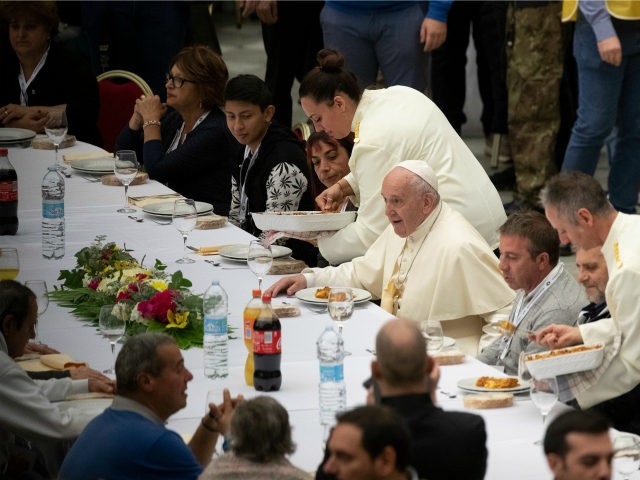ROME — Pope Francis said Saturday that it is “evident” climate change is to blame for a number of humanity’s social ills, as well as disrupting the balance of nature.
“It is evident that climate change not only upsets the balance of nature, but causes poverty and hunger, affects the most vulnerable, and sometimes forces them to leave their land,” the pope told a group gathered in the Vatican on Saturday.
As he has done on other occasions, Francis insisted on the relationship between environmental responsibility and social justice.
“Neglect of creation and social injustices influence each other: it can be said that there is no ecology without justice and there is no justice without ecology,” he said.
The pope’s audience consisted of participants in a meeting of members of the Laudato Sì community, named after the pontiff’s 2015 encyclical letter on the environment, which bears the same name.
Francis underscored the importance of the “integral ecology” Laudato Sì proposed, meaning that “we are all creatures and everything in creation is related.”
“I dare say, everything is harmonious,” he continued. “The pandemic has also proved it: human health cannot be separated from that of the environment in which it lives.”
“We need a real will to tackle the root causes of the ongoing climate upheavals,” Francis insisted. “Generic commitments are not enough — words, words.”
“To those of you who pray, I ask to pray for me, and to those who do not pray, at least send me good vibes, I need it!” he concluded.
Pope Francis has made care for the environment and opposition to climate change a hallmark of his seven-year pontificate, taking to task world leaders who have shown too little resolve in their battle against global warming.
Last April, Francis said he believes the Chinese coronavirus pandemic is “nature’s response” to humanity’s failure to address the “catastrophes” wrought by human-induced climate change.
Asked by a British journalist if the coronavirus crisis is an opportunity for an “ecological conversion,” the pontiff reasserted his belief that humanity has provoked nature by not responding adequately to the climate crisis.
“There is an expression in Spanish: ‘God always forgives, we forgive sometimes, but nature never forgives,’” Francis said. “We did not respond to the partial catastrophes. Who now speaks of the fires in Australia, or remembers that a year and a half ago a boat could cross the North Pole because the glaciers had all melted? Who speaks now of the floods?”
“I don’t know if it is nature’s revenge, but it is certainly nature’s response,” he added.
The month before, the pope said something similar, insisting that the coronavirus pandemic is nature’s cry for humans to take better care of creation.
Asked if the pandemic is nature’s way of taking “revenge” on humanity, the pontiff suggested that nature is calling for attention.
“Fires, earthquakes … nature is throwing a tantrum so that we will take care of her,” he said.
Last December as well, the pope said that natural disasters, such as a massive storm that struck northern Italy in the fall of 2018, are nature’s way of sounding an alarm to make us more environmentally engaged.
“These are events that frighten us,” Francis said. “They are alarm signals that creation sends us, which summon us to immediately take effective decisions to safeguard our common home.”

COMMENTS
Please let us know if you're having issues with commenting.